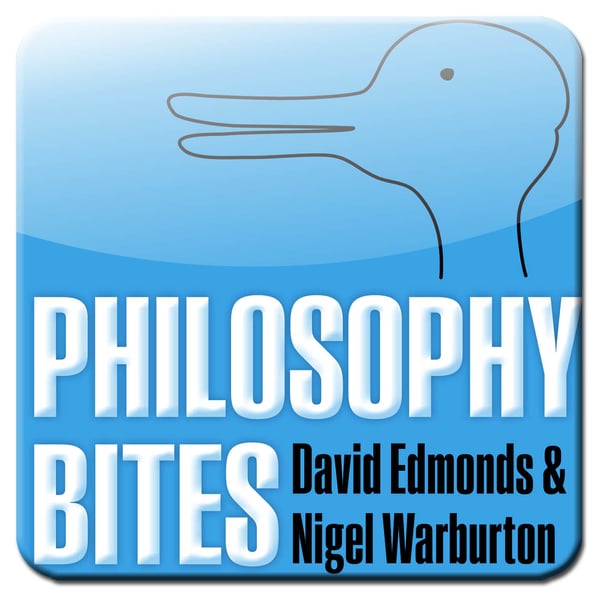Tom Stoneham on George Berkeley's Immaterialism
Philosophy Bites
Nigel Warburton
4.6 • 2K Ratings
🗓️ 27 April 2014
⏱️ 19 minutes
🧾️ Download transcript
Summary
George Berkeley was famous for arguing that objects are really just ideas. In this episode of the Philosophy Bites podcast Tom Stoneham clarifies what he meant by this.
Transcript
Click on a timestamp to play from that location
| 0:00.0 | This is Philosophy Bites with me Nigel Warburton and me David Edmonds. |
| 0:07.0 | If you enjoy Philosophy Bites please support us. |
| 0:10.0 | We are currently unfunded and all donations would be gratefully received. |
| 0:14.0 | For details go to W.W. philosophy bites.com. |
| 0:19.0 | Two US universities have a particular connection to Bishop Berkeley, the Irish philosopher born in 1685. |
| 0:26.4 | The first is Yale. |
| 0:28.0 | Berkeley had brought a plantation during his years in the New World 1728 to 1731 and later donated the land to Yale providing funding for its first |
| 0:36.8 | scholarships. The second is named after him, an honour somewhat devalued by a mispronunciation, the University of California, Berkeley. |
| 0:46.1 | As Berkeley scholar Tom Stoneham explains, the Bishop insisted on the distinction between |
| 0:50.6 | mind and body and became most famous for promoting a theory of immaterialism. |
| 0:56.0 | Tom Stoneham, welcome to Philosophy Bites. |
| 0:59.0 | Hello, Nigel. Thanks for having me. |
| 1:01.0 | The topic we're going to focus on is George Barclay's immaterialism. |
| 1:05.8 | What is it immaterialism? |
| 1:08.1 | Well, it's the denial of any matter. |
| 1:10.8 | It's the view that there is a world, but it's not made of matter. It's the view that there is a world but it's not made of matter. |
| 1:14.0 | Okay we'll come back to that. Let's get to the other bit. Who was George Barclay? |
| 1:18.0 | Well he was an Irish philosopher born in the late 17th century, mainly active in the early 18th century and he was |
| 1:26.8 | a fellow of Trinity College Dublin and eventually went on to be a bishop in later life. |
| 1:31.8 | He's usually called Bishop Barclay isn't he? Yes he is I don't like |
| 1:35.8 | that myself he didn't become a bishop until he was 49 and he'd written all his |
| 1:39.6 | major philosophical works. He had been ordained in 1709, so he'd been a clergyman for a long time, |
... |
Please login to see the full transcript.
Disclaimer: The podcast and artwork embedded on this page are from Nigel Warburton, and are the property of its owner and not affiliated with or endorsed by Tapesearch.
Generated transcripts are the property of Nigel Warburton and are distributed freely under the Fair Use doctrine. Transcripts generated by Tapesearch are not guaranteed to be accurate.
Copyright © Tapesearch 2025.

